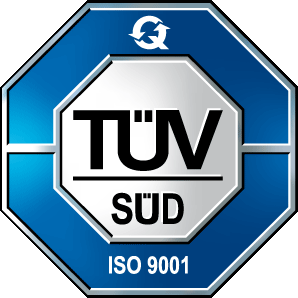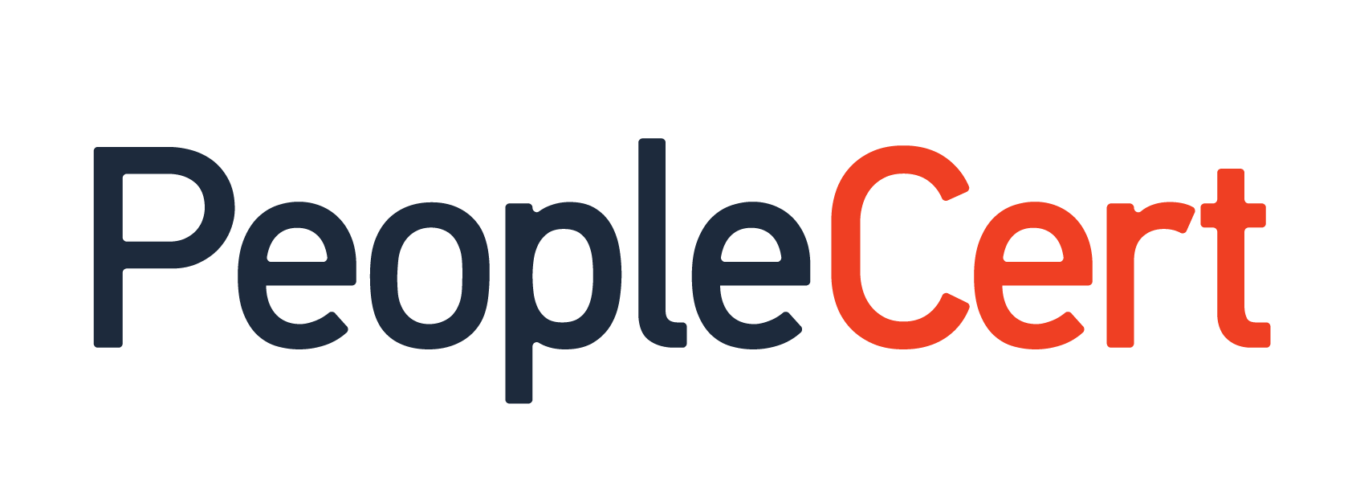Multigenerational Team Management
The "Multigenerational Team Management" training program equips leaders with the skills needed to effectively collaborate with employees from different generations – from Baby Boomers to Generation Z.
Participants will explore proven strategies for communication, motivation, and fostering engagement within age-diverse teams. The program focuses on leveraging the unique strengths of each generation and ensuring effective knowledge transfer. This intensive, interactive course strengthens leadership competencies and supports the development of a modern, inclusive workplace culture. Through real-world challenges and case studies, participants will develop practical tools and solutions that can be implemented in their own teams.
Multigenerational Team Management
Training objectives Multigenerational Team Management
- Understanding generational traits and values in the workplace – participants will learn the core characteristics of Baby Boomers, Generation X, Millennials, and Gen Z, and how these impact team dynamics,
- Identifying and valuing the unique strengths of each generation, with a focus on the experience and wisdom of 45+ employees,
- Mastering strategies to bridge communication gaps between generations and reduce conflicts stemming from generational differences,
- Developing the ability to create synergy between traditional experience and modern work approaches, maximizing the potential of all team members,
- Building competencies in reverse and two-way mentoring, where older employees learn from younger ones and vice versa,
- Understanding how to adapt management and communication styles to different age groups without favoring any one generation,
- Acquiring knowledge of effective strategies for motivating and engaging multigenerational teams,
- Learning techniques to leverage generational diversity as a competitive advantage for the organization,
- Developing skills in managing intergenerational knowledge transfer and ensuring organizational continuity,
- Preparing for leadership roles that foster inclusive work environments where each generation feels valued and empowered.
Who do we recommend Multigenerational Team Management
- Mid- and senior-level managers leading teams composed of representatives from different generations (from Gen Z to Baby Boomers),
- Department heads and team leaders in organizations facing challenges related to generational differences in the workplace,
- HR and People Operations specialists responsible for shaping organizational cultures that support intergenerational collaboration,
- Project leaders managing multigenerational teams and looking to maximize the potential of age-diverse talent,
- Managers in organizations undergoing digital transformation, who need to bridge the experience of older employees with the adaptability of younger generations,
- Directors and owners of small and medium-sized enterprises striving to effectively utilize the potential of all age groups,
- Organizational consultants and business trainers specializing in team development and looking to expand their competencies in managing generational diversity,
- Leaders in non-profit organizations and public institutions managing teams with a broad age range.
Training Program
Lesson 1 – Introduction to Managing Multigenerational Teams
- Welcome and training objectives
- Sharing participants' experiences with generational diversity
- Definition and characteristics of workplace generations: Baby Boomers, Gen X, Millennials, Gen Z
- Myths and stereotypes about generations – separating fact from assumption
- Benefits of intergenerational diversity in organizations
- Challenges of managing multigenerational teams
- Introduction to the value of 45+ employees' experience
Lesson 2 – Generational Characteristics and Strengths
- In-depth analysis of each generation’s defining traits
- Work values, motivations, and expectations across age groups
- Unique contributions of 45+ employees: experience, institutional knowledge, stability
- Learning and career development styles across generations
- Approaches to technology and innovation by age group
- Preferences in organizational culture and work environment
- Exercise: mapping the strengths of your own team
Lesson 3 – Intergenerational Communication
- Differences in communication styles between generations
- Preferred communication channels: face-to-face vs messaging platforms
- Building communication bridges between age groups
- Delivering feedback effectively to each generation
- Managing meetings with all generations in mind
- Leveraging diverse perspectives in communication processes
- Practical techniques for inclusive team communication
Lesson 4 – Two-Way Mentoring and Knowledge Transfer
- The concept of reverse mentoring
- Designing effective two-way mentoring programs
- Senior employees as mentors of experience and organizational culture
- Younger employees as mentors in technology and new trends
- Facilitation techniques for intergenerational knowledge exchange sessions
- Creating psychologically safe spaces for knowledge sharing
- Capturing and preserving institutional knowledge
- Case study: success story of an intergenerational mentoring program
Lesson 5 – Motivation and Engagement Across Generations
- Differences in motivational factors by generation
- Adapting reward systems to diverse values
- Career development opportunities tailored to life stage
- Work-life balance vs. work-life integration across generations
- Leveraging senior employees’ experience in strategic processes
- Designing career paths that reflect generational aspirations
- Flexible work arrangements and job design
- Fostering a culture of recognition for all generations
Lesson 6 – Conflict Management and Building Synergy
- Common sources of generational conflict in teams
- Mediation techniques for resolving intergenerational disputes
- Turning differences into competitive strengths
- Building multigenerational project teams
- Leveraging complementary strengths across generations
- Creating a culture of mutual learning and respect
- Team integration strategies that embrace age diversity
- Workshop: solving real-life intergenerational conflicts
Lesson 7 – Inclusive Leadership and Performance Measurement
- Traits of leaders who effectively manage generational diversity
- Adaptive leadership styles for different generations
- Creating an inclusive organizational culture
- KPIs and success metrics in managing multigenerational teams
- Evaluating satisfaction and engagement across age groups
- Planowanie sukcesji z uwzględnieniem transferu wiedzy międzypokoleniowego
- Długoterminowe strategie wykorzystania potencjału wszystkich pokoleń
- Q&A session
- Individual implementation plans based on training content
- Knowledge assessment exam for participants
- Training evaluation and conclusion
Languages and locations
Training sessions are conducted in Polish or English, both online and in-class. Regardless of the chosen form, we guarantee high quality of teaching and a strong focus on practical aspects of project management. We also offer closed training, adjusting location and program to company's needs.
Delivery guarantee
Training is confirmed 14 days in advance. If the minimum number of participants is not met, the training may be postponed or canceled. Participants who paid earlier can choose a new date, a different topic, or a refund.
Organization of online training
Online training is delivered on the Microsoft Teams communication platform.
Participants will receive a detailed schedule of meeting hours in individual organizational messages.
Details:
- No later than 7 days before the start of the training, participants will receive individual organizational messages to the e-mail address provided during registration, containing:
- Confirmation of the date of training implementation
- Information about the implementation times of each meeting
- Information about the communication platform on which the training will be implemented
- Links and passwords required to log in to each meeting
- After the training, participants will receive training materials at the e-mail address provided at registration
- Within 3 business days of completing the training, participants will receive certificates confirming completion of the training in PDF format to the email address provided at registration
- NOTE: Please verify your SPAM box if you do not receive a message within the given timeframe
Organization of stationary training
Details
- During the training we provide participants with coffee breaks and lunch
- For special dietary needs, please let us know when registering for the training so that we can provide a lunch tailored to the diet of the participants
- No later than 7 days before the start of the training, participants will receive organizational messages to the e-mail address provided during registration, containing:
- Confirmation of the date of training implementation
- Address details of the training room
- Confirmation of class hours and breaks
- Lunch details
- Within 3 business days of completing the training, participants will receive certificates confirming completion of the training in PDF format to the email address provided at registration
- NOTE: Please verify your SPAM box if you do not receive a message within the given timeframe
Who conducts the training?
The experts conducting the training are practitioners with many years of experience in project management. Thanks to this, the information they provide goes far beyond what can be read in books. They support the presented knowledge with real examples from design life.
What accreditation does this training have?
Szkolenie pmexperts Lider Transformacji AI jest akredytowane przez Project Management Institute (PMI®) na podstawie Umowy Partnerskiej oraz spełnia wymagania akredytacyjne.
Can I change the training date after purchase?
Yes, the date of the purchased training can be changed no later than 2 weeks before the planned training.
Are there any requirements for participating in the training?
Nie ma żadnych wymagań, które należałoby spełnić przed udziałem w szkoleniu. Zarządzanie Projektami z AI jest szkoleniem dedykowanym dla osób początkujących.
Will I receive a certificate after completing the training?
You will receive a certificate of completion of training from an accredited PMI partner.
Is it possible to get a discount for a group of people from the same organization?
To receive an individual offer for the group, contact us by e-mail: office@pmexperts.com
Is it possible to participate in online training from a country other than Poland?
Yes, participants from outside Poland can also take part in online training. We provide training in Polish and English.
Download the brochure in PDF format
Price
Request a corporate training
We organize training sessions upon request for groups of at least 6 participants. Contact us to arrange a session.
Do you need a pro forma invoice?
Complete the registration form to issue a pro forma invoice.
Do you have any questions?
Contact us for more information. Go to contact






